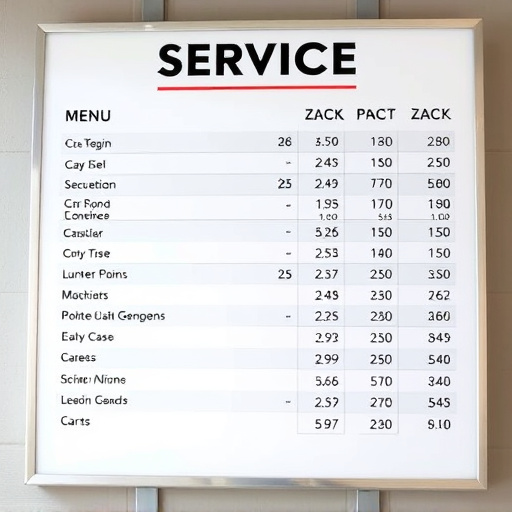Reusable air filter intakes made from washable materials are gaining popularity as a sustainable alternative to disposable filters. They significantly reduce plastic waste, offer economic benefits through longevity and reusability, and maintain high-quality indoor air by capturing dust, pollen, and other contaminants. The initial investment in reusable filters is offset by their durability and environmental benefits.
In today’s world, prioritizing indoor air quality is more vital than ever. One effective solution gaining traction is the adoption of washable filters, offering a sustainable and cost-effective alternative to traditional disposable filters. This article delves into two primary strategies: reusable air filter intakes and washable filters themselves. By exploring their environmental impact, cost savings, ease of maintenance, and user experiences, we’ll highlight why these options are transforming indoor environments, ensuring cleaner air for homes and offices alike.
- Reusable Air Filter Intakes: A Sustainable Alternative
- – Exploring the concept of reusable filters
- – Comparison with traditional disposable filters
Reusable Air Filter Intakes: A Sustainable Alternative

Reusable air filter intakes are gaining popularity as a sustainable alternative to traditional disposable filters. These innovative solutions offer multiple advantages, particularly in terms of environmental impact and cost-effectiveness. By using washable materials, reusable intakes can significantly reduce the vast amount of plastic waste generated by single-use filters, contributing to a greener future.
Unlike their disposable counterparts, reusable air filter intakes are designed to be cleaned and revitalized, extending their lifespan. This not only minimizes waste but also provides economic benefits for users. With proper care, these filters can last for years, making them a wise investment for those seeking high-quality indoor air without contributing to the environmental footprint of single-use products.
– Exploring the concept of reusable filters

Reusable filters, particularly in the context of air intake systems, are gaining popularity as an eco-friendly and cost-effective alternative to disposable options. These filters are designed to be washed and reused multiple times, significantly reducing waste generation compared to traditional paper or cotton filters. By adopting reusable air filter intakes, users can actively contribute to a more sustainable lifestyle without compromising on performance.
The concept behind washable filters is simple yet powerful: they capture and retain particles like dust, pollen, and other contaminants, allowing clean air to pass through. After a certain period of use, these filters can be thoroughly cleaned, removing accumulated debris, and restored to their original efficiency. This process not only extends the lifespan of the filter but also ensures consistent air quality, making it an attractive option for individuals conscious of both environmental impact and indoor air health.
– Comparison with traditional disposable filters

In comparison to traditional disposable filters, reusable air filter intakes offer a range of advantages that make them an increasingly popular choice for many. While disposable filters are convenient and readily available, they contribute significantly to waste generation due to their single-use nature. In contrast, washable filters can be used multiple times before needing replacement, reducing the overall environmental impact.
Reusable air filters not only decrease waste but also provide cost savings over time. Though the initial investment for a washable filter might be higher, its longevity and reusability lead to substantial long-term savings compared to the continuous purchase of disposable filters. Additionally, these washable filters often boast superior performance, capturing more pollutants and allergens, thereby enhancing air quality within homes and vehicles.
Reusable air filter intakes, like washable filters, represent a significant step towards sustainability in our daily lives. By opting for these innovative solutions, we can reduce waste and lower our environmental impact. With their longevity and efficiency, washable filters offer an eco-friendly alternative to traditional disposable options, making them a valuable choice for conscious consumers.














